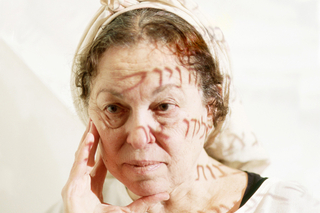Location: Miller Hall
406 Prospect Street
New Haven, CT 06511
Open To: General Public
Admission: Free
Description: Jewish women played a significant role in the feminist art movement since the early 1970s in the United States, grappling with their Jewish identity through their art. This conference brings together leading scholars and artists to examine this field of feminist art created by Jewish women and Jewish-themed feminist art.
The conference aims to revisit basic questions about American Jewish feminist art, past and present, as well as to introduce new questions about this field of art, mapping critical strategies and new frameworks of thought. We will examine the interplay between feminism and Judaism in works of well-known artists as well as in the work of those representing lesser known trends, such as Jewish religious feminist art in the US. The discussions will emphasize the larger social, historical, and intellectual contexts within which these artists operate/d.
Speakers will include:
- Helène Aylon - Artist
- Matthew Baigell – Rutgers University
- Paula Birnbaum – University of San Francisco
- Lisa E. Bloom - UC Berkeley
- Laura Kruger - Bernard Heller Museum at the Hebrew Union College—Jewish Institute of Religion
- Gail Levin – The Graduate Center, CUNY
- Mierle Laderman Ukeles – Artist
- Mor Presiado – Bar-Ilan University
- David Sperber – Yale Institute of Sacred Music
- Tanya Zion-Waldoks - Princeton University
- John Corrigan (Florida State University)
